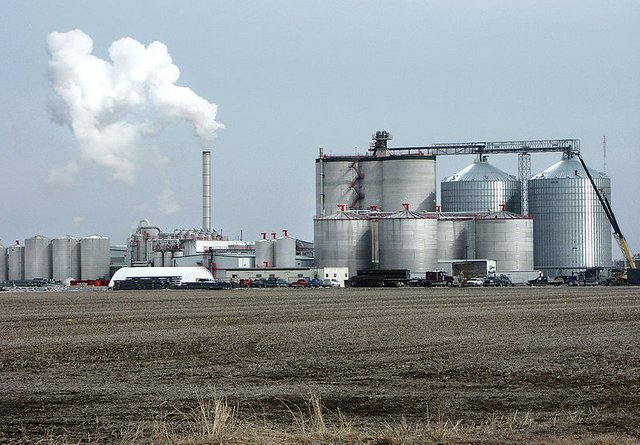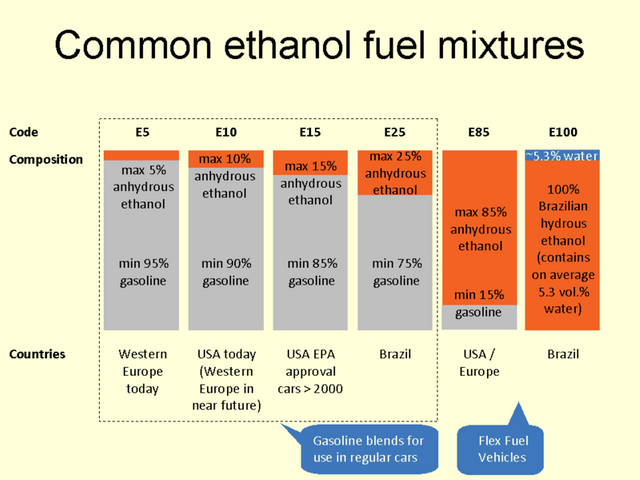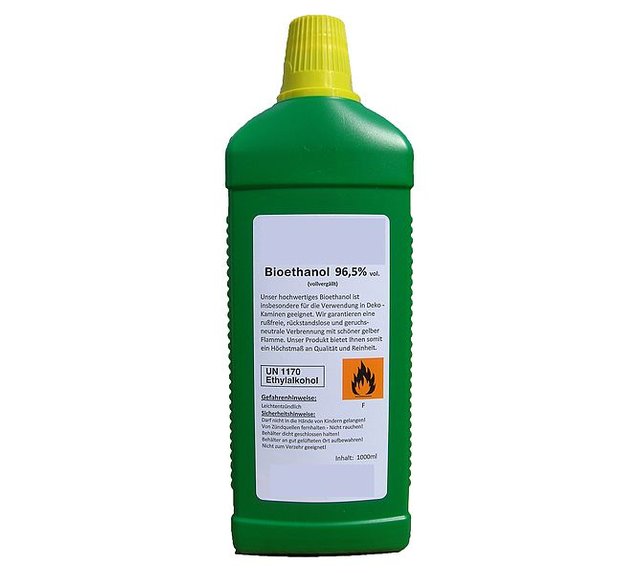In the past 150 years, human activities such as burning of fossil fuels such as gasoline and natural gas have pumped enough carbon dioxide into the atmosphere to raise its levels higher than they have been for hundreds of thousands of years source.
Do I need to say more concerning the issue of global warming in our world today? I think not. As a result of this looming menace of global warming, the need to look for alternative energy sources that would eliminate fossil fuels has been a priority. Although we have not been able to totally eliminate the fossil fuels in our lives, there has been gradual improvements in reducing their use cum dependence for our energy needs.
Being one of the key contributors to the release of greenhouse gases to the environment, the automobile industry has had its fair share of regulations and measures to reduce and control emissions. Other energy sources are getting adopted for powering the vehicles all in a bid to stop (or reduce these emissions). Solar powered vehicles and especially electric vehicles are gradually getting recognized all over the world as alternatives to ensure a greener environment without eliminating comfort. As far as I know, we cannot stop using automobiles.

image source: pixabay
Why would anyone ask us to stop using automobiles? You might want to ask. Well, no one wants you to stop using automobiles rather they are simply saying it is about time we to looked for a way to make sure that automobile emits the least amount of carbon dioxide into the atmosphere. Truth be told, the burning of fossil fuels is not the only process that involves the release of carbon dioxide, heck we humans also breathe out Carbon dioxide but the point is, having too much of the gas in the atmosphere is not a good thing. How much Carbon dioxide can plants take away eh?
Some days ago, I talked about the bio alternative to the diesel fossil fuel – biodiesel and how it can be used instead of diesel in diesel engines. I was somewhat disappointed however as I was expecting someone to ask if there was the petrol equivalent of the fuel as biodiesel can only be used in diesel engines. Unfortunately, no one asked, I guess they were carried away by the promising nature of the biodiesel fuel and the fact that it can be made from readily available materials. Well, maybe I am about to wow you once again.
Movies lie or not?
Sometimes in movies, we see the actors do some stuff that cannot happen in real life. Things like someone peeing into the fuel tank of a vehicle when the fuel finished and drives the car. Like seriously? A car running on urine? Maybe it is possible, maybe not, you can check here to see. As weird and bizarre as it sounds, no one would in his right senses decide to pee into the fuel tank of his car and expect it to run (except the person is high on alcohol). Oh alcohol!! I have seen a movie where alcohol was used instead and the vehicle ran smoothly.
The case of alcohol still holds some water (oh what about water?). Well, I once saw a commercial on tv (popular in Nigeria for a while) that involved a man fueling his car with water (yeah u heard that right!) and the catching phrase was”one day, cars will run on water” funny isn’t it? Well, we hope that “one day will come” @samminator what do you think?
Back to alcohol
As much as I know, alcohol shouldn’t be a new thing to any of us, it is the content in the drinks (booze) we drink that gives us that feeling. Unfortunately, according to traffic regulations and the police, alcohol and automobile driving are not best of friends. The statement “if you would drive, don’t drink and if you would drink, don’t drive” is common worldwide (in different interpretations). However, have you considered it this way?
if I cannot drink and drive, can my car do the drinking?
This would bring you back to the movie I mentioned earlier. Well, what if I told you that was possible? Don’t be surprised, a lot of things are possible with technology (if not now, it would be in the nearest future) and in the case of alcohol consuming vehicles, yes that is very possible. In fact it has been possible for years before now.
Going as far back as 1978 in Brazil, car engines have been designed to run fully on ethanol (which is an alcohol) or partly as a mixture with petrol.

Light it up! Image source: wikimedia commons under the Creative Commons Attribution 2.5 Generic license.
Is it that simple?
Looking at the fact that alcohol can burn in the presence of air (oxygen) is not a new one as a lot of club rockers do this for fun (pouring a shot of rum and lighting it up), can we simply conclude that alcohol in any form can power our petrol engines?
Well, not really. Saying petrol engines can run on alcohol doesn’t mean we can simply get a bottle of rum or gin and fill it into the fuel tank. These alcoholic drinks were not made for engine consumption as some other additives (or subtractive lol) would be present.
So how then can we go about it?
Well the basic truth is, petrol engines can actually run on ethanol as fuel. Ethanol is a part of the ingredients for making drinks and that’s why the drinks are not so much of the best option.
Moving on, although there are several ways ethanol can be produced, I would be focusing on the renewable and environmental friendly type of alcohol ethanol known as BIOETHANOL.
Haha! So my car can get drunk?
Bioethanol is ethanol produced from agricultural products. As a result, it can also be referred to as a biofuel amongst others. It is considered renewable, eco-friendly and biodegradable thereby making the earth a better place without eliminating automobiles.
As I stated earlier, this “ethanol” is not different from the one found in alcoholic drinks so yes, your car can get drunk. However, your car getting drunk doesn’t pose as much danger as it will if you are the drunk party.
Although ethanol can be gotten from other sources such as petroleum, calcium carbide and others but does that make it bio? You guessed right, no! For it to be considered as bioethanol, it has to be gotten from sources such as plants or biomass.
Bioethanol can be gotten from a host of agricultural products including sugarcane, potatoes, cassava, corn and wheat just to mention a few. The ethanol is commonly extracted from the plants by a process known as fermentation and then processed to meet standards.
A little chemistry (yuck!)
Here in Nigeria, we have a local meal known as pap (or ogi in Yoruba language). This pap is produced by grinding cereal crops such as corn and then left in a water bath to ferment after which some other processes are done. The process of fermentation simply involves the breaking down of the carbohydrates in the food crop into simpler Carbon compounds such as organic acids, gases or alcohol.
According to the Merriam Webster dictionary, fermentation is
an enzymatically controlled anaerobic breakdown of an energy-rich compound (such as a carbohydrate to carbon dioxide and alcohol or to an organic acid); broadly: an enzymatically controlled transformation of an organic compound.
Relating to ethanol, ethanol fermentation is a process that converts the sugar (that is what carbohydrates are made of) into ethanol and carbon di-oxide as energy is given off. The process is made possible by addition of yeast.
In simple English, fermentation is a process whereby sugars are broken down to produce simpler substances such as alcohol and some other gases (carbon dioxide). Phew! That was quite a big one.
Raise your glasses!
Here in Nigeria, there are some locally made drinks that are produced by fermenting. Brews such as ogogoro, pito and fermented palm wine are not for the faint feeted as they contain various percentages of alcohol (unmeasured) and they can knock one off their feet if taken irresponsibly. Oh yes, the beauty of the fermentation process (or not).
Production of bioethanol is very similar to the process by which alcoholic drinks are produced from barley and the likes. As a matter of fact it is more of like brewing alcohol for vehicles. Funny right? Its very true. The only difference is that bioethanol fuel cannot (and should not) be consumed by humans simply because ethanol for fuel does not undergo the type of multiple distillations done for drinkable alcohol to make it suitable for human consumption and also, there are some additives in ethanol fuel that would be harmful if consumed orally.

An Ethanol plant. Image source: wikimedia commons public domain
Producing bioethanol is done in stages. First, the feedstock (corn, sugarcane, wheat, etc) need to undergo a process known as hydrolysis simply to break it down to sugars and prepare it for fermentation. After which the fermentation process is carried out with the addition of yeast and application of heat (this process takes about three days at temperatures between 200 and 300 degrees Celsius). After the fermentation process, the ethanol produced is then distilled and dehydrated to remove the water that would be present (water is not supposed to be in the engine combustion chamber).
Production and use of bioethanol is very common in countries such as Brazil and United states where they are the top producers worldwide. In Brazil, the use of bioethanol in automobiles have been available since 1978 (such a long time). Other countries are also catching the craze of using bioethanol as a result of the increasing awareness of the dangers of automobile emissions and global warming.
Let’s get on the road!

A flex fuel vehicle. Image source: wikimedia commons under the Creative Commons Attribution-Share Alike 4.0 International license.
If your vehicle is of the model year 1999 and above, it is said that you can use bioethanol as fuel without any modifications whatsoever. This is because auto manufacturers are aware of the possibility of using ethanol as fuel and thus they produce the engines to be flexible-fuel vehicles i.e. vehicles that can run on more than one type of fuel either as mixtures or individually (in this case, petrol and ethanol). 100% ethanol vehicles (which undoubtedly use bioethanol) are abundant in places like Brazil where the production and supply of bioethanol is abundant. A 100% ethanol fuel is usually referred to as E100.

Common Ethanol Fuel Mixtures. Image source: Wikimedia commins
In other cases, bioethanol is usually produced and used as a fuel additive for petrol engines i.e. it is mixed with petrol in standard percentages. Ethanol in petrol helps increase the octane value (because ethanol has a higher octane rating) of the fuel thereby helping the engine perform better. Some of the common blends of bioethanol and petrol are E25 (25% ethanol and 75% petrol), E75 (75% ethanol and 25% petrol) and E85 (85% ethanol and 15% petrol) more of like having a taste of both worlds.
Bioethanol vs Petrol

Bioethanol fuel container wikimedia commons under the Creative Commons Attribution 3.0 Unported license.
The good
The advantages of bioethanol over petrol for automobiles is very evident. It is a renewable fuel in the sense that its supply can always be replenished by planting new crops unlike petrol which we all know the reserves are dwindling. Because of the large variety of crops that can be used as feedstock for bioethanol, it has the tendency of taking over from petrol as it helps reduce the dependence on petrol while taking the environment into consideration.
Also, using bioethanol as fuel helps to reduce emissions by up to 37% and thus make our Earth a safer place. One might want to argue that combustion of ethanol involves the release of carbon dioxide well, that is true but have it in mind that that same amount of carbon dioxide had already been consumed by the plants. As a result of this, there is no addition of carbon dioxide to the environment, you are only returning the carbon dioxide used by the plant which would eventually be used by the new set of plants to be cultivated and the cycle repeats.
In the case of transporting fuels, there could be cases of spills which in the case of petrol incurs a lot of cost to clean up and also causes damage to vegetation however, bioethanol is a better counterpart as it is biodegradable and thus incurs little or no costs in the event of a spill.
Moving on, ethanol has a higher octane value than petrol and thus is safer for the engine as the likelihood of knock is smaller than when petrol is used also increasing the thermal efficiency. This also means that an engine running on ethanol would “waste less energy” compared to a petrol powered one.
The bad and ugly
Mentioning the idea of using food crops for producing fuel for vehicles brings about the issue of sacrificing our food to make fuel thereby increasing the demand for these food crops and eventually the prices. This could also affect biodiversity as demand for bioethanol would result in destroying some natural habitats so as to secure land to plant these crops. Simply, it brings about the war between food and fuel (which would you choose).
Relating to the engine, bioethanol has a lower energy content than petrol (about 34% less) this means that if you are running on ethanol fuel, you would be consuming more fuel for the same amount of work as compared to petrol. The gasoline gallon efficiency of ethanol fuel is pegged at 1.5 meaning you would need 1.5 gallons of ethanol fuel to deliver the same output 1gallon of petrol would, this results in more frequent stops and might really be annoying.
Also, using bioethanol during winter might not be a good idea as a high percentage of ethanol in the fuel might cause the engine to have difficulty starting in cold conditions. This is because, in cold conditions, the vapor pressure of ethanol drops and thus would be difficult to get vaporized in order to get ignited efficiently. Can you imagine the agony of not being able to start your engine successfully?
The hygroscopic nature of ethanol is also a bad side as it tends to absorb water from air. As a result of this, the possibility of transporting bioethanol by sea or pipeline is a no. if water finds its way into the ethanol fuel, it could cause corrosion of the internal (metallic) parts of the engine and also affect the energy output and performance of the engine.
CONCLUSION
I would like to refer to one of the biggest names in the automobile industry – Henry Ford as a prophet because he had already referred to bioethanol as the fuel of the future. Bioethanol has been around for such a long time. Ford’s model T was designed to run on bioethanol he said and I quote
“The fuel of the future is going to come from fruit like that sumach out by the road, or from apples, weeds, awdust — almost anything,” source
Using biofuels such as bioethanol and biodiesel in automobiles would go a long way in reducing the harmful effects of emissions from automobiles on our environment. It doesn’t come without its bad effects but it really is promising. The fact that these types of fuel have been around for so long is also something to reckon with. I understand that one of the reasons these fuels failed to gain world attention is was the discovery of large oil reserves in various places around the word. However the growing and unending awareness concerning pollution and global warming has reignited the interest on these type of fuels.
In the near future, worldwide acceptance of these biofuels is very possible as they are gradually replacing fossil fuels. In places like Brazil, the acceptance of bioethanol has reflected in the large expanse of land dedicated to cultivating sugarcane. Bioethanol can also be used in other applications such as cooking
At one time or the other, alcohol has made some (if not all) of us feel good, little do we know that it can also make our automobile engines and environment feel good too. Although the feeling may be different, it all result the same way – we feel good!
If you find yourself in any part of the world where they use ethanol based fuels, feel free to give your vehicle a taste of the booze, it is good for all of us.
REFERENCES
What is bioethanol
Ethanol fuel
What is bioethanol
Bioethanol
Bioethanol from poplar: a commercially viable alternative to fossil fuel in the European Union
Bioethanol
Bioethanol production from renewable sources
Bio-knowledge
Air pollution
If you write STEM (Science, Technology, Engineering, and Mathematics) related posts, consider joining #steemSTEM on steemit chat or discord here. If you are from Nigeria, you may want to include the #stemng tag in your post. You can visit this blog by @stemng for more details.

You can also join us at Promo-Mentors, to improve your blogging skills. Join our discord channel and meet awesome mentors who are willing and ready to shape your writing skills.


i think some research is necessary for petrol, because one day all world's petrol will end than what to do, how can you survive in this world without any fuel...
Downvoting a post can decrease pending rewards and make it less visible. Common reasons:
Submit
There are many alternatives for petrol already. We have solar energy sources that can even power a shopping mall like shoprite and many petrol statiin in this country Nigeria are using solar energy to power the plant. We also have electric cars such as Tesla out there. I believe without peteol life will move on with less hazardous gass being released.
Downvoting a post can decrease pending rewards and make it less visible. Common reasons:
Submit
This is a really nice read. I was having a question a first but I found the answer in the body of the post. Wouldn't it compete with human for food and hence increasing the price. But I've gotten the answer.
One thing I think will work tho. What if instead of using the food part of the plant for the production of bioethanol, we can make use of the stem, the leaves, the roots... They should contain some percentage of CHO which will be all that is needed for the fermentation. Maybe not as efficient as that of the food part but a good alternative.
Downvoting a post can decrease pending rewards and make it less visible. Common reasons:
Submit
you are right about that. other parts of the plants can also be used as feedstock, even biomass.
Take corn for example, the other parts of the plant apart from the grain are not as high in starch and thus would not be an economical option in the case of large scale production. although research is being done to device how to convert cellulose (which those other parts are mainly made of) to ethanol.
you can read more here
Downvoting a post can decrease pending rewards and make it less visible. Common reasons:
Submit
Thanks for the response. I'm sure it will soon be a reality and also a great breakthrough to convert cellulose.
Downvoting a post can decrease pending rewards and make it less visible. Common reasons:
Submit
Congratulations! Your post has been selected as a daily Steemit truffle! It is listed on rank 21 of all contributions awarded today. You can find the TOP DAILY TRUFFLE PICKS HERE.
I upvoted your contribution because to my mind your post is at least 16 SBD worth and should receive 166 votes. It's now up to the lovely Steemit community to make this come true.
I am
TrufflePig, an Artificial Intelligence Bot that helps minnows and content curators using Machine Learning. If you are curious how I select content, you can find an explanation here!Have a nice day and sincerely yours,

TrufflePigDownvoting a post can decrease pending rewards and make it less visible. Common reasons:
Submit
Its a nice read. I once remember the Nigerian govt. had ideas about producing fuel off sugarcane..some years ago.
Now, with regards to the current trend of electricity and solar powered cars, do you think biofuel will be able to complete (replace) these cars.
Downvoting a post can decrease pending rewards and make it less visible. Common reasons:
Submit
Hmm, this was really well written, I'm quite surprised that i read it to the end because of my very low attention span. I had actually come across the idea of using alcohol as fuel particularly in Brazil as you mentioned.
I remember wondering why its adoption wasn't already widespread, but you pointed out that already. I would like to know, what's the cost of buying a litre of the ethanol based fuel compared to buying the regular fuel?
Downvoting a post can decrease pending rewards and make it less visible. Common reasons:
Submit
This post has been upvoted and picked by Daily Picked #57! Thank you for the cool and quality content. Keep going!
Don’t forget I’m not a robot. I explore, read, upvote and share manually 😊
You can upvote, follow, resteem, delegate and join my curation trail to support me, good creators and minnows.
Thank you!
Downvoting a post can decrease pending rewards and make it less visible. Common reasons:
Submit
This post has been voted on by the steemstem curation team and voting trail.
There is more to SteemSTEM than just writing posts, check here for some more tips on being a community member. You can also join our discord here to get to know the rest of the community!
Downvoting a post can decrease pending rewards and make it less visible. Common reasons:
Submit
Hi @rharphelle!
Your post was upvoted by utopian.io in cooperation with steemstem - supporting knowledge, innovation and technological advancement on the Steem Blockchain.
Contribute to Open Source with utopian.io
Learn how to contribute on our website and join the new open source economy.
Want to chat? Join the Utopian Community on Discord https://discord.gg/h52nFrV
Downvoting a post can decrease pending rewards and make it less visible. Common reasons:
Submit
Congratulations @rharphelle! You have completed the following achievement on Steemit and have been rewarded with new badge(s) :
Click on the badge to view your Board of Honor.
If you no longer want to receive notifications, reply to this comment with the word
STOPTo support your work, I also upvoted your post!
Do not miss the last post from @steemitboard:
SteemitBoard World Cup Contest - The results, the winners and the prizes
Downvoting a post can decrease pending rewards and make it less visible. Common reasons:
Submit
@rharphelle, you killed this one totally. I mean, your large expanse of references and your drawing from both indigenous and foreign sources made a lot of sense. About the content, I have heard about the whole bioethanol thing but it never really occurred to me that it had anything to do with fermentation and alcohol
Downvoting a post can decrease pending rewards and make it less visible. Common reasons:
Submit